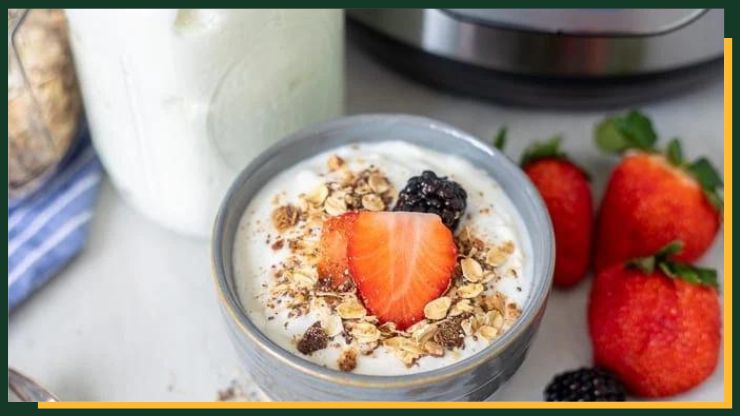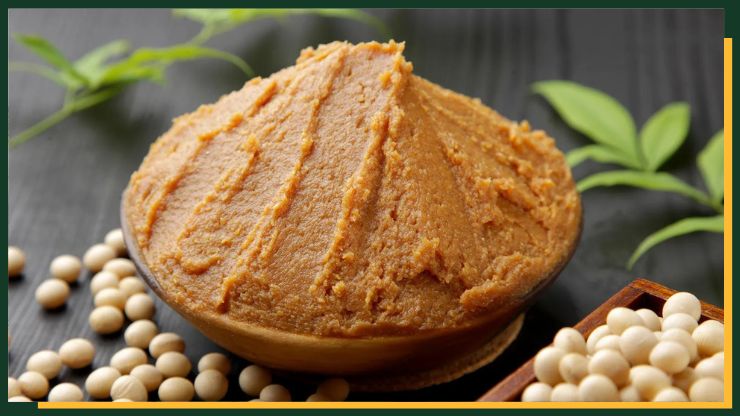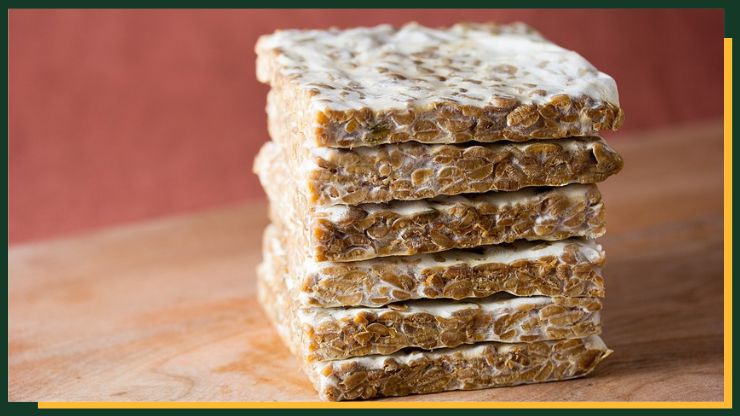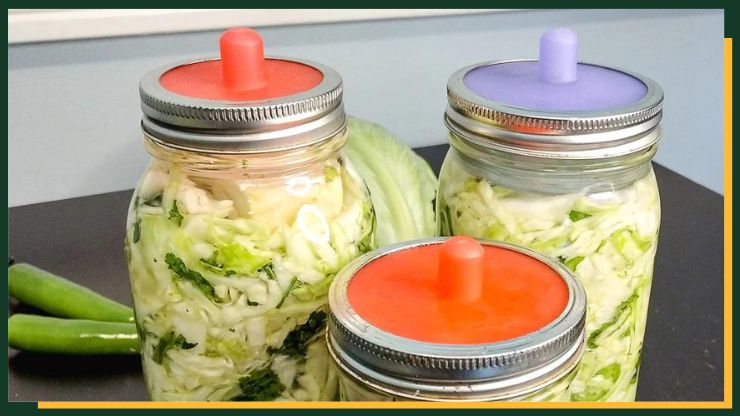Add Fermented Foods to Your Diet – Fermented foods have gained recognition for their health benefits and delicious flavors. Fermentation is a natural process that transforms raw ingredients into flavorful, gut-friendly superfoods, thanks to the action of beneficial microorganisms.
Incorporating these foods into your diet can have a positive impact on your overall well-being. From yogurt and sauerkraut to kombucha and miso, there’s a wide variety of fermented delicacies to choose from.
In this guide, we will explore the diverse types of fermented foods and their numerous health advantages. We’ll also provide practical tips on how to integrate these culinary delights into your daily meals and snacks, whether you’re a seasoned food enthusiast or just starting your journey into the world of fermentation.
Discover the exciting world of fermented foods and unlock the potential for improved gut health, enhanced nutrient absorption, and a richer culinary experience.
Table of Contents
ToggleImportance of including fermented foods in your diet
The importance of including fermented foods in your diet extends far beyond their delicious taste. Here are several compelling reasons to make fermented foods a regular part of your dietary choices:
- Gut Health: Fermented foods are rich in probiotics, beneficial bacteria that promote a healthy gut microbiome. A balanced gut microbiome is linked to better digestion, reduced inflammation, and improved overall health.
- Improved Nutrient Absorption: Fermentation breaks down complex compounds, making nutrients more accessible for your body to absorb. This can enhance the bioavailability of essential vitamins and minerals in the foods you consume.
- Digestive Health: Probiotics found in fermented foods can help alleviate digestive issues such as bloating, gas, and diarrhea. They may also aid in managing conditions like irritable bowel syndrome (IBS).
- Enhanced Immune System: A significant portion of your immune system resides in your gut. By promoting a healthy gut microbiome, fermented foods can help bolster your immune defenses and protect against infections.
- Mental Health: Emerging research suggests a strong connection between gut health and mental well-being. Consuming fermented foods may positively impact mood, reduce anxiety, and even play a role in managing conditions like depression.
- Diverse Flavor Profiles: Fermentation adds depth and complexity to the flavors of foods, making your meals more exciting and enjoyable. From the tangy notes of sauerkraut to the fizzy effervescence of kombucha, fermented foods offer a wide range of tastes to explore.
- Longevity and Wellness: Traditionally, many cultures around the world have incorporated fermented foods into their diets. This practice is often associated with increased longevity and overall well-being.
Also, Read – Health Benefits of Fermented Foods
Ways to Add Fermented Foods to Your Diet
Start with yogurt

Start with yogurt, a versatile and delicious fermented food. Opt for plain, unsweetened yogurt with live active cultures, as they contain beneficial probiotics. You can enjoy yogurt on its own, mix it with fruits and honey for a sweet treat, or add it to smoothies for extra creaminess and probiotic benefits.
Yogurt can also serve as a base for homemade dressings and dips. Incorporating yogurt into your daily routine is an easy way to enhance your gut health and add a creamy, tangy element to various dishes.
Sauerkraut and kimchi

Sauerkraut and kimchi, both fermented cabbage dishes, are rich in probiotics and add a delightful tang to your meals. Sauerkraut offers a milder, slightly sour flavor and is often used as a topping for hot dogs or paired with sausages.
Kimchi, with its spicy, pungent kick, is a staple in Korean cuisine and can be enjoyed as a side dish or added to stir-fries, rice bowls, or sandwiches.
These fermented vegetables are easy to incorporate into your diet, providing not only a burst of flavor but also a boost to your gut health, thanks to the live cultures they contain.
Kombucha

Kombucha is a fizzy, fermented tea that offers a unique and refreshing way to introduce probiotics into your diet. This tangy beverage comes in various flavors and is often consumed as a healthy alternative to sugary sodas.
Kombucha is believed to promote gut health and provide a source of antioxidants. It can be enjoyed on its own as a bubbly, low-calorie drink or used as a mixer in cocktails and mocktails. The natural effervescence and slightly tart taste make it a popular choice for those seeking a flavorful and health-conscious beverage option.
Also, Read – Best Fermented Foods
Fermented pickles

Fermented pickles are a crunchy and tangy addition to your diet, packed with probiotics. Unlike vinegar-pickled cucumbers, these pickles undergo a natural fermentation process in a saltwater brine. The result is a delightfully sour and slightly effervescent flavor.
Fermented pickles can be enjoyed as a snack or added to sandwiches and burgers for an extra zing. Their probiotic content promotes gut health and digestion.
Additionally, these pickles are typically free of added sugars and preservatives, making them a wholesome choice for those looking to boost their probiotic intake while savoring a classic, briny taste.
Miso

Miso is a versatile and savory fermented soybean paste widely used in Japanese cuisine. This umami-rich condiment offers a depth of flavor and is prized for its probiotic benefits. Miso can be used to prepare delicious miso soup, as well as to flavor marinades, dressings, and sauces.
Don't just scroll, subscribe!
BuzzTrail's unique web-stories are the cure for boredom you've been waiting for.
Its distinct taste varies from sweet and mild to salty and robust, depending on the type of miso used. Beyond its culinary uses, miso is known for its potential health benefits, such as aiding digestion and providing a source of essential nutrients. Incorporating miso into your cooking not only elevates flavor but also introduces probiotics to your diet.
Tempeh

Tempeh is a nutrient-rich, plant-based protein made from fermented soybeans. With a nutty, earthy flavor and a firm texture, it’s a versatile ingredient for vegetarian and vegan diets. The fermentation process not only enhances its taste but also makes the nutrients more accessible to the body.
Tempeh is a fantastic meat substitute in a variety of dishes, from stir-fries and sandwiches to salads and grain bowls. It’s rich in protein, fiber, and probiotics, offering numerous health benefits. Incorporating tempeh into your diet not only provides a hearty, satisfying meal option but also supports gut health and overall nutritional balance.
Fermented dairy products

Fermented dairy products are delicious and rich in probiotics. They include yogurt, kefir, and skyr. Yogurt, made by fermenting milk with live cultures, is a creamy and versatile option. It can be enjoyed on its own or used in various dishes, like smoothies and dressings.
Kefir is a fermented milk drink, similar to yogurt but thinner, and provides a tangy and probiotic-rich alternative. Skyr is an Icelandic-style yogurt known for its thick and creamy texture.
These fermented dairy products are excellent sources of beneficial bacteria for gut health and can be a tasty addition to your daily diet, offering both a refreshing taste and a host of nutritional advantages.
Sourdough bread

Sourdough bread is a beloved and flavorful alternative to traditional bread, made through natural fermentation. Its unique tangy taste and chewy crust are achieved by a long fermentation process using wild yeast and lactic acid bacteria.
Sourdough is easier to digest for some people compared to commercial bread, thanks to its pre-digestion of gluten and phytic acid. It’s an excellent choice for those with mild gluten sensitivities.
This bread’s distinct flavor enhances sandwiches, toast, and more. When selecting sourdough, look for loaves with minimal ingredients and a long fermentation time, as this ensures a higher probiotic content and a truly artisanal product.
Fermented condiments

Fermented condiments offer a burst of flavor and probiotics. Consider adding fermented hot sauce, fish sauce, or soy sauce to your culinary repertoire. Fermented hot sauces, like sriracha or Tabasco, undergo a fermentation process that intensifies their taste while infusing them with probiotics.
Fish sauce, a staple in Asian cuisine, is made by fermenting fish with salt and water. It adds a savory umami element to dishes. Soy sauce, especially naturally brewed or traditionally fermented varieties, is rich in flavor and probiotics.
Incorporating these condiments into your cooking not only enhances taste but also provides a unique way to introduce beneficial bacteria to your diet, potentially improving your gut health.
Homemade ferments

Making homemade ferments is a rewarding and cost-effective way to add probiotic-rich foods to your diet. Try your hand at fermenting foods like pickles, sauerkraut, kimchi, or kefir. Fermenting at home allows you to control the ingredients and tailor the flavors to your liking.
Start with simple recipes and follow proper safety guidelines to ensure a successful fermentation process. You can experiment with different vegetables, spices, and fermentation times to create unique flavors.
Homemade ferments not only promote gut health but also provide you with delicious, homemade additions to your meals, allowing you to enjoy the benefits of live cultures while exploring your culinary creativity.
Conclusion
In conclusion, fermented foods are not only delicious but also essential for promoting overall health and well-being. By embracing these probiotic-rich culinary delights, you can enhance your gut health, improve nutrient absorption, and potentially even boost your immune system.
The diverse array of flavors and potential mental health benefits make fermented foods a valuable addition to your diet.
Whether you’re a seasoned enthusiast or just starting your journey, the world of fermentation holds exciting possibilities for both your palate and your health. So, go ahead and savor the tangy, fizzy, and savory pleasures of fermented foods, and experience the many rewards they offer.
FAQs
What are fermented foods, and why should I include them in my diet?
What are fermented foods, and why should I include them in my diet?
Fermented foods are foods that have undergone a natural process of fermentation, involving the action of beneficial microorganisms like bacteria and yeast. They offer various health benefits, including improved gut health and enhanced nutrient absorption.
What types of fermented foods can I incorporate into my diet?
What types of fermented foods can I incorporate into my diet?
There’s a wide range of options, including yogurt, kefir, sauerkraut, kimchi, kombucha, miso, and more. Fermented dairy, vegetables, grains, legumes, and beverages are all available for you to enjoy.
How can I include fermented foods in my breakfast?
How can I include fermented foods in my breakfast?
Add yogurt or kefir to your morning smoothie, top your cereal or oatmeal with fruit and yogurt, or explore recipes for fermented grain-based breakfast options.

